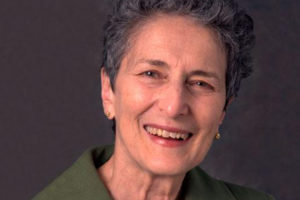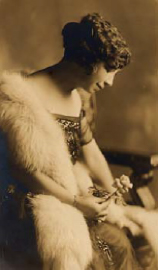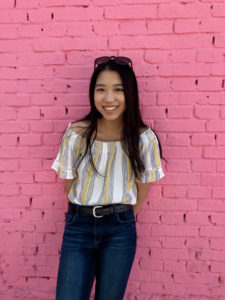by Deborah Qu
Twenty-twenty has proven itself to be a challenging year, starting with the spring semester at UC Berkeley suddenly moving online to accommodate for the shelter-in-place order during a worldwide pandemic. Stressed, demotivated, and anxious, many of us students had to balance school on top of financial, familial, mental health, and other issues. Needless to say, I was extremely touched by the flexibility and continued commitment that many of my professors exhibited this semester. Twenty-twenty is also the 150th year of the University of California opening its doors to women, and I am lucky to be part of a project of the Oral History Center to identify all the interviews of UC-related women in its collection. While doing this research, I found myself especially interested in the stories of UC Berkeley women faculty. Many of these women were pioneers in their own fields at the time, or pursued their passion for learning despite great adversity.
The oral history of historian Natalie Zemon Davis reminded me that what is first seen as unconventional or disadvantageous can sometimes actually be an opportunity. As the only woman in a department of men, she used her position to include more units focused on women in history and expanded gender studies classes at UC Berkeley. Professor Elizabeth Malozemoff reminded me that learning is a valuable treasure and that pursuing education could continue at any age. Going back to school and earning her degrees at Cal, she rebuilt her life with such an unbroken positive attitude after leaving her home in Russia because of the chaos from the Bolshevik Revolution. Reading about their life experiences not only made me proud to be a Golden Bear, but also gave me encouragement and a sense of hopefulness for the future.
Natalie Zemon Davis

Professor Natalie Zemon Davis is a social and cultural historian who specializes in Early Modern History. In 1968, she arrived at UC Berkeley as a visiting professor and the only woman in the History Department at the time. She attained full professorship later in 1971. In addition to Berkeley, she has taught at Brown University, the University of Toronto, and Princeton University. In her interview conducted by the Oral History Center of The Bancroft Library in 2003, Professor Davis recounts the difficulties attaining equality as a woman in a male-dominated field. This, in turn, sparked an interest in teaching history with a focus on women.
From the start, Davis did the unconventional. She chose to go into graduate school while also being married, which were seen as two distinct and diverging pathways for women in the 1950s. She recalls in her oral history interview that while her teachers were “not optimistic about women marrying and having children and having a career, because they had taken other paths,” Davis was not interested in following norms. Her marriage was founded on “egalitarian ideals.” She was one of the very few female students studying archival social history. Although the professors treated her seriously, she admitted that there was a difference in social attitude and treatment, stating “they just didn’t think about what it might be like to be a woman student.” But her interest in history meant more to her than adhering to the status quo. She remembers, “there was no way I was going to be stopped….I loved my work so much.”
Instead of allowing the challenges of being one of the only women to overwhelm her, it actually sparked an interest to bring a greater emphasis on the perspective of women into the historical discourse. Working with female graduate students in 1966 at the University of Toronto, Davis studied the experiences of women with children working toward their Ph.D., hoping to raise awareness to daycare needs. She was one of the first to hold undergraduate economic history classes with a focus on women “as central characters,” by adding topics regarding women poverty and labor services. Her integrity behind her courses stood out; she taught what she thought was important and interesting without expecting that it would lead to recurring courses. At UC Berkeley, Professor Davis taught the Reformation course, “Society and the Sexes in Early Modern Europe,” which looked at the likeness and differences between genders, garnering attention for the expanding field of gender studies. Professor Davis was involved in the Academic Senate Committee on the Status of Women, an initiative committed to hiring more women in academic departments.
While Davis’s accomplishments already make her story noteworthy, her confident attitude to pursue her passion was what really left a strong impression on me. As someone interested in pursuing a career in academia but also sometimes racked with self doubt about my ability, I admired the simplicity in her love of history and gender studies. And I certainly felt pride for UC Berkeley when she praised the institution for its “open” environment, which she felt gave her a space to experiment with understanding history and culture through the perspective of women.
Elizabeth Malozemoff

As the spring semester continued on, I, like many others, was having difficulty staying motivated for my online classes. But, when I read through Professor Elizabeth Malozemoff’s oral history interview, I was suddenly reminded of the simple fun and joy learning can bring. Before Malozemoff went on to become a Russian Culture and Literature professor at UC Berkeley, she was born in Tsarist Russia in 1881. Growing up as a daughter of a seamstress who interacted with the wealthy, she became familiar with the entrenched classism within Russian society, specifically the contempt toward the meshchane, or whom she called the “petty bourgeois.” She explained in her oral history how the meshchane were seen as “the people who cannot rise from the ground, who are only interested in eating and sleeping, they have no interest in anything culture or in anything spiritual.” According to Malozemoff, this only gave people of the meshchane a strong desire to break free from such conceptions. Her mother, who could speak multiple languages but could not read or count well, had a “determination to give the children the best education possible,” because it was a dream her “mother had when she was a young girl.” Malozemoff believes that her class upbringing became interlaced with her identity starting from a young age, and subsequently acted as fuel and passion for her teaching.
Malozemoff began teaching at age 19 in St. Petersburg, later founded a kindergarten in 1915 for workingmen’s children while holding adult classes for miners, and also was principal for a high school at Lena Gold Mines from 1918–1920. However, her world was upturned when the Bolshevik Revolution in 1917 first brought on unwanted cuts and limitations to her school, and then the “saddest tragedy of my life.” She recalls in the interview how she heard from her younger brother:
I received a telegram from him announcing the deaths of the five dearest people in my life. There had been a massacre around the estate. The Bolsheviks massacred my mother, my two sisters, and even the nurse of my little nieces, and then my brother was killed. My nephew, a boy of twelve, jumped out of the window when these Bolsheviks came and started to use their rifles. The two little nieces, twins, crawled into a stove and they stayed there during the night. The whole place was ransacked.
The violence and political unrest ultimately led Malozemoff to leave her life and established career in Russia to escape with her family through Siberia, Mongolia, China, and Japan, until they eventually reached San Francisco in 1920. Heartbroken, she had to start her life from scratch.
Yet at the same time Malozemoff recalls that she entered the United states with a sense of fresh optimism, believing that it was “a blissful country for us that would give us a chance to develop our capabilities.” As she began to acculturate into American life, she made it her purpose “to give in written form American culture to the Russians, and also to bring Russian culture to my American audience, my American friends and the American people.” She also felt a sense of inferiority in her education, that her teaching in the “lower classes” and caring for her children had left her “so ignorant, not being up-to-date with literature, with music, with historical events which had occurred during the ten years.” Specializing in Russian culture, she enrolled and received her B.A. in 1922 at age 41, her M.A. in 1929, and her Ph.D in the Department of Slavic Languages and Literatures in 1938, all of which were obtained at the University of California, Berkeley. From 1935–1950, Malozemoff became a Russian language and culture professor, continuing her longterm passion for teaching and introducing Russian culture to students at Cal.
Needless to say, her journey was marked with obstacles. Malozemoff recalls the confusing process of adapting to American culture, stating that “during the first months in a foreign country you don’t understand what’s going on, not knowing the language, and not knowing many of the ways of life.” Regardless of what she had experienced, her optimism stood out to me. In her interview she remembers her horror while walking through a neighborhood during Christmastime, misinterpreting the wreaths hung on doors as a symbol for death in the family, instead of a festive decoration. While she saw it later as a “funny mistake,” it is one of countless examples of the little confusions an immigrant experiences while trying to adapt to a new culture in day-to-day life.

Perhaps it is the stories hinting at her ability to connect with her students, the wisdom she gained from traveling, or her tenacity to learn and find new forms of teaching that I find most admirable. Or maybe it is her mantra that she proved to live by that I find most striking. Her favorite saying goes, “step forward, always forward, in all circumstances in life.” According to her, that is precisely what she did, “trying to be alive with continuous desire to be human and humane, in steps forward the simplification and service to the people.”
Deborah Qu just finished her first year at UC Berkeley and is majoring in psychology. As a part of the celebration of 150 years of women at Berkeley, Deborah is researching the Oral History Center’s vast archive to identify women in the collection with a relationship to UC Berkeley.
Find these and all our oral histories from the search feature on our home page. You can search by name, key word, and several other criteria.